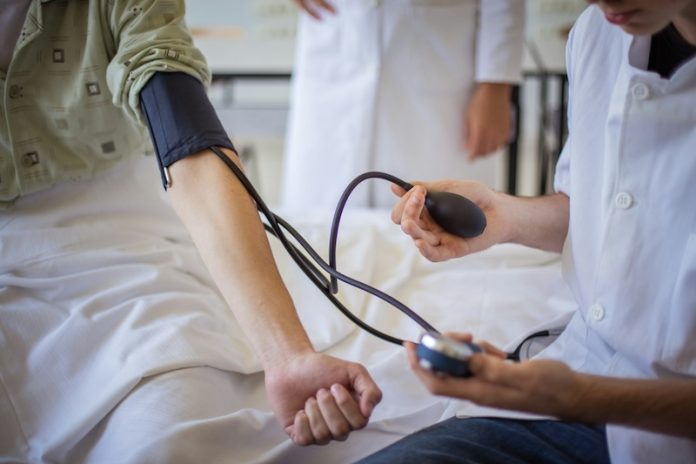
High blood pressure, also called hypertension, is a serious health condition that affects more than one in four adults in Sweden. It’s one of the leading causes of illness and death worldwide.
While it is treatable in most cases, it is often ignored or not managed well enough. Over time, uncontrolled high blood pressure can lead to major health problems like heart attacks, strokes, and even early death.
A group of researchers from the University of Gothenburg wanted to better understand how different blood pressure levels affect health risks, especially in older people who have high blood pressure but have never had a heart attack or stroke. What they found was eye-opening.
One of their studies showed that people who managed to keep their top blood pressure number—called systolic pressure—below 130 mmHg had a 40% lower chance of having a heart attack or stroke compared to those whose levels were between 130 and 139 mmHg. That’s a big difference, and it shows that keeping blood pressure lower really can save lives.
Another study looked at people with an irregular heartbeat (atrial fibrillation) who were taking blood-thinning medications. It found that people with systolic blood pressure between 140 and 179 mmHg had twice the risk of a dangerous type of stroke caused by bleeding in the brain (called a hemorrhagic stroke), compared to people with levels between 130 and 139 mmHg.
In addition to these focused studies, the researchers also looked at data from over 259,000 patients in a large health database. The results were concerning: nine out of ten people had poorly controlled blood pressure, high cholesterol, or smoked—all major risk factors for heart disease and stroke.
These findings suggest that a large number of people in Sweden are at serious risk of preventable illness and early death.
The lead researcher, Johan-Emil Bager, stressed the urgent need for better treatment and monitoring of high blood pressure. He and his team believe that many patients may need stronger or more personalized care to reduce their risk of life-threatening events.
This means not just taking medication, but also making lifestyle changes—like eating healthier foods, quitting smoking, being more active, and lowering cholesterol levels.
The research adds to growing evidence that doctors and patients need to pay more attention to blood pressure numbers, especially the systolic reading. For some people, aiming for a lower target could make a huge difference in avoiding a heart attack or stroke.
These studies were published in respected medical journals such as Brain and Behavior, and they provide powerful evidence that more action is needed. Managing high blood pressure well is not just about living longer—it’s about living healthier and avoiding serious health issues down the road.
If you have high blood pressure or are at risk, now is the time to talk to your doctor about the best plan for you. Taking control of your blood pressure today could save your life tomorrow.
If you care about high blood pressure, please read studies that early time-restricted eating could help improve blood pressure, and natural coconut sugar could help reduce blood pressure and artery stiffness.
For more information about blood pressure, please see recent studies about How to eat your way to healthy blood pressure and results showing that Modified traditional Chinese cuisine can lower blood pressure.
Copyright © 2025 Knowridge Science Report. All rights reserved.



